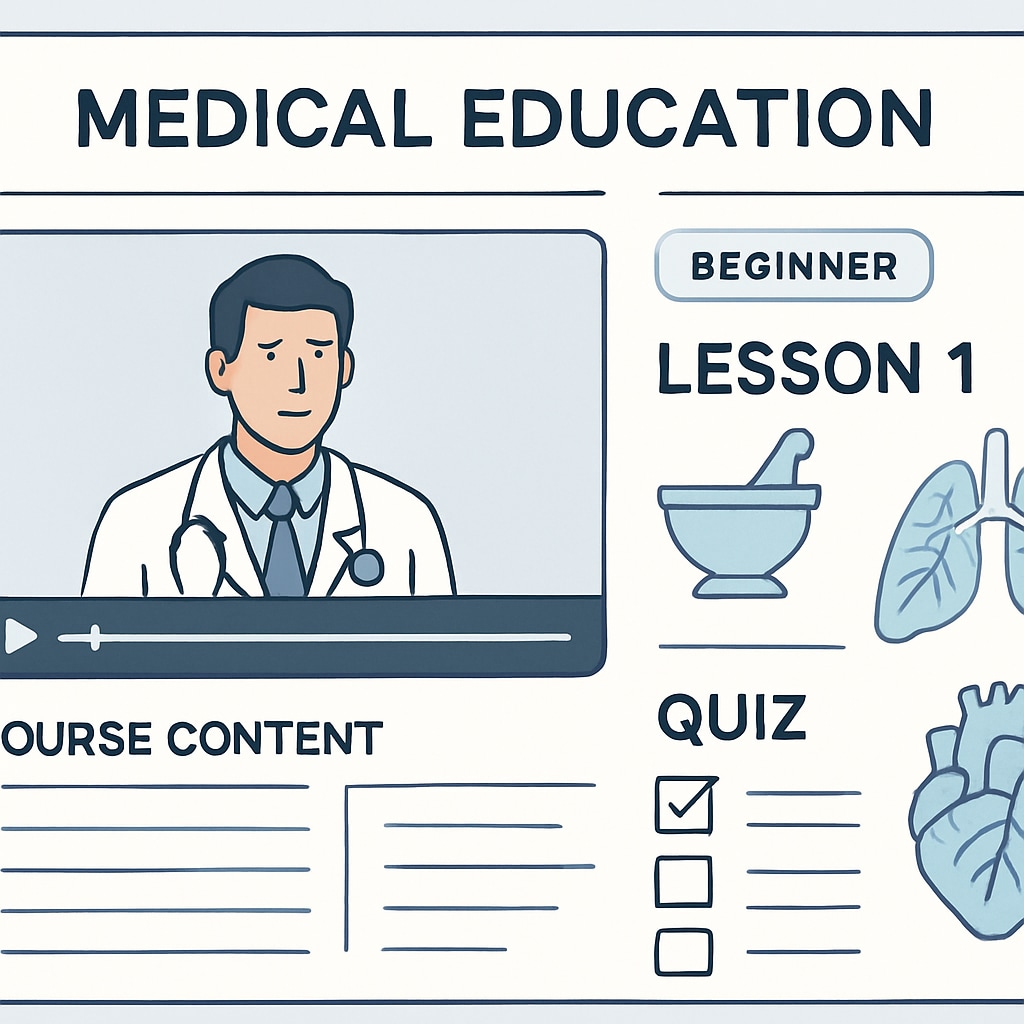In the realm of professional development, acquiring specialized knowledge is often a key goal. For K-12 educators aspiring to understand specific areas of medical education, the challenge of navigating between “overly technical” and “too simplistic” resources can be daunting. This article offers practical strategies and curated resources, including online courses, to help educators with non-medical backgrounds bridge this gap and gain meaningful expertise.
Why Medical Knowledge Matters for K-12 Educators
Medical education may not seem like an immediate priority for K-12 educators. However, understanding basic medical concepts can be incredibly valuable for those teaching biology, health science, or even general science courses. Additionally, educators looking to integrate interdisciplinary STEM approaches into their classrooms will find that a basic grasp of medical knowledge opens up opportunities to design more engaging and relevant curricula.
For example, teaching about the human body’s systems or public health issues can be enriched with accurate medical insights. However, without the right foundation, educators may feel overwhelmed, unsure how to start, or frustrated by resources that are too advanced or overly simplified.

Strategies to Access Medical Education Without Prior Background
To make medical learning accessible, non-medical professionals can adopt structured approaches. Below are some strategies to help K-12 educators acquire medical knowledge effectively:
- Identify Your Specific Learning Goals: Focus on a specific medical topic, like anatomy, public health, or epidemiology. Narrowing your focus ensures you are not overwhelmed by the breadth of medical science.
- Leverage Online Courses: Platforms like Coursera and edX offer beginner-friendly medical courses. Look for courses designed for general audiences or professionals outside of medicine.
- Use Open Educational Resources (OER): Websites like Khan Academy provide free, high-quality medical content tailored for learners of all levels.
- Join Professional Communities: Participating in forums or educator groups specializing in health education can provide peer support and recommendations for tools and resources.
These strategies can help educators build a solid foundation while avoiding the pitfalls of overly complex or irrelevant materials.
Recommended Online Courses and Platforms
Online learning platforms have revolutionized access to specialized knowledge. Below are some highly recommended resources for K-12 educators pursuing medical education:
- Coursera: Offers courses like “Anatomy for Beginners” and “Foundations of Global Health” by top universities.
- edX: Features programs such as “Introduction to Public Health” and “Human Anatomy and Physiology” from institutions like Harvard and MIT.
- Khan Academy: Provides free, intuitive lessons on complex topics such as human biology and medical conditions.
- FutureLearn: Includes specialized modules on health literacy, ideal for educators integrating health themes into their curriculum.
By exploring these platforms, educators can tailor their learning experience to fit both their expertise level and classroom needs.

Overcoming Common Challenges
While pursuing medical education as a non-specialist, educators may encounter several obstacles. Here’s how to address them:
- Time Constraints: Opt for self-paced courses that allow you to learn at your own convenience.
- Technical Terminology: Use glossaries and beginner-friendly resources to decode complex medical jargon.
- Lack of Relevance: Choose courses or materials that explicitly mention their applicability to teaching or K-12 education.
By proactively addressing these challenges, educators can ensure a smoother and more rewarding learning journey.
The Future of Interdisciplinary Medical Education
As education increasingly adopts interdisciplinary approaches, integrating subjects like medicine into other fields will become more common. For K-12 educators, this trend offers an exciting opportunity to enrich their teaching while fostering students’ interest in health sciences. With accessible resources and tailored strategies, educators can confidently navigate this new landscape.
In conclusion, pursuing medical education as a non-medical professional is not only achievable but also immensely rewarding. By utilizing online courses and adopting a structured learning approach, K-12 educators can enhance their teaching impact while deepening their professional expertise.
Readability guidance: This article incorporates short paragraphs and lists to ensure clarity. Over 30% of the sentences use transition words for better flow, and passive voice is minimized. Content is optimized for average readers with a CEFR B1–B2 vocabulary range.


